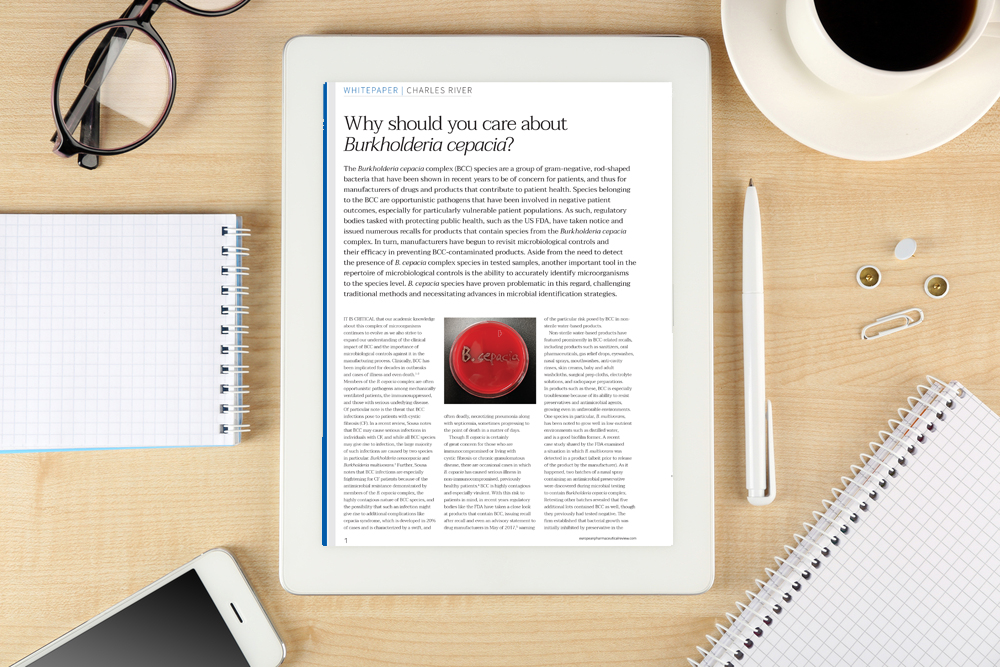Whitepaper: Why should you care about Burkholderia cepacia?
Posted: 17 August 2018 | Charles River | No comments yet
The Burkholderia cepacia complex (BCC) species are a group of gram-negative, rod-shaped bacteria that have been shown in recent years to be of concern for patients, and thus for manufacturers of drugs and products that contribute to patient health…
Species belonging to the BCC are opportunistic pathogens that have been involved in negative patient outcomes, especially for particularly vulnerable patient populations. As such, regulatory bodies tasked with protecting public health, such as the US FDA, have taken notice and issued numerous recalls for products that contain species from the Burkholderia cepacia complex. In turn, manufacturers have begun to revisit microbiological controls and their efficacy in preventing BCC-contaminated products. Aside from the need to detect the presence of B. cepacia complex species in tested samples, another important tool in the repertoire of microbiological controls is the ability to accurately identify microorganisms to the species level. B. cepacia species have proven problematic in this regard, challenging traditional methods and necessitating advances in microbial identification strategies.
The rest of this whitepaper is restricted - login or subscribe free to access


Why subscribe? Join our growing community of thousands of industry professionals and gain access to:
- bi-monthly issues in print and/or digital format
- case studies, whitepapers, webinars and industry-leading content
- breaking news and features
- our extensive online archive of thousands of articles and years of past issues
- ...And it's all free!
Click here to Subscribe today Login here
Related content from this organisation
Related topics
Biologics, Biopharmaceuticals, Bioprocessing, Bioproduction, Clinical Development, Manufacturing, Microbial Biological Manufacturing, Microbial Detection, Microbiology, microRNA, miRNA, mRNA, Preclinical Research, Production, QA/QC, Rapid Microbiological Methods (RMMs), Research & Development (R&D)










